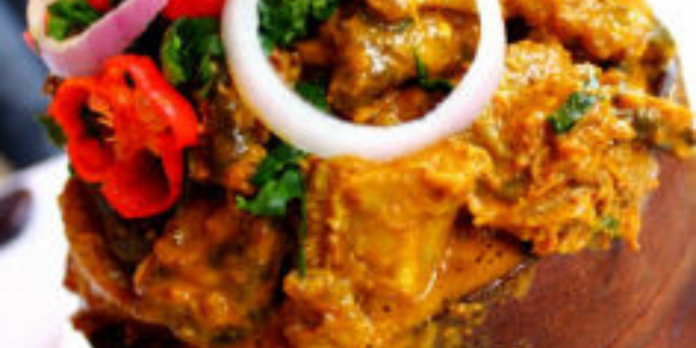Table of Contents
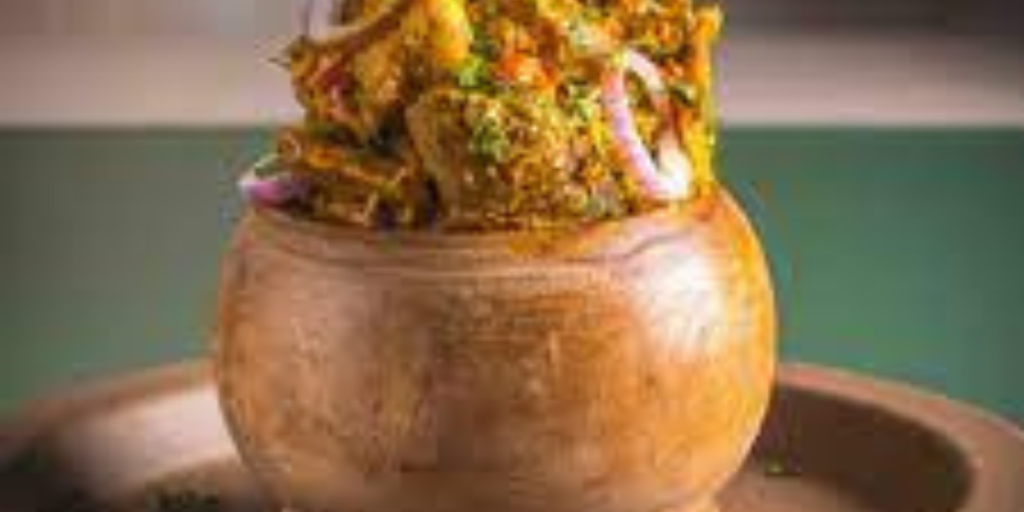
Nkwobi, a delectable and richly flavored Nigerian delicacy, is a dish that has captured the hearts and taste buds of many across the globe. Often enjoyed as a savory treat in the evening, Nkwobi brings together the unique flavors of goat meat and a deeply aromatic palm oil sauce, creating an unforgettable culinary experience. Whether you’re a seasoned chef or a home cook looking to explore African cuisine, this comprehensive guide will take you through the fascinating journey of cooking Nkwobi with goat meat.
In this blog post, we will delve into the history of Nkwobi, understand its cultural significance, and provide you with a step-by-step guide to preparing this beloved dish. You’ll learn about the best ingredients to use, the essential kitchen tools needed, and the cooking techniques that will help you achieve the perfect Nkwobi. We will also explore traditional and modern serving methods, cultural aspects, and answer common questions to ensure your Nkwobi cooking adventure is a success.
Nkwobi :The Health Benefits of Nkwobi? Nigeria Best 1
So, let’s embark on this flavorful journey together and discover the secrets to making mouthwatering Nkwobi with goat meat!
History of Nkwobi
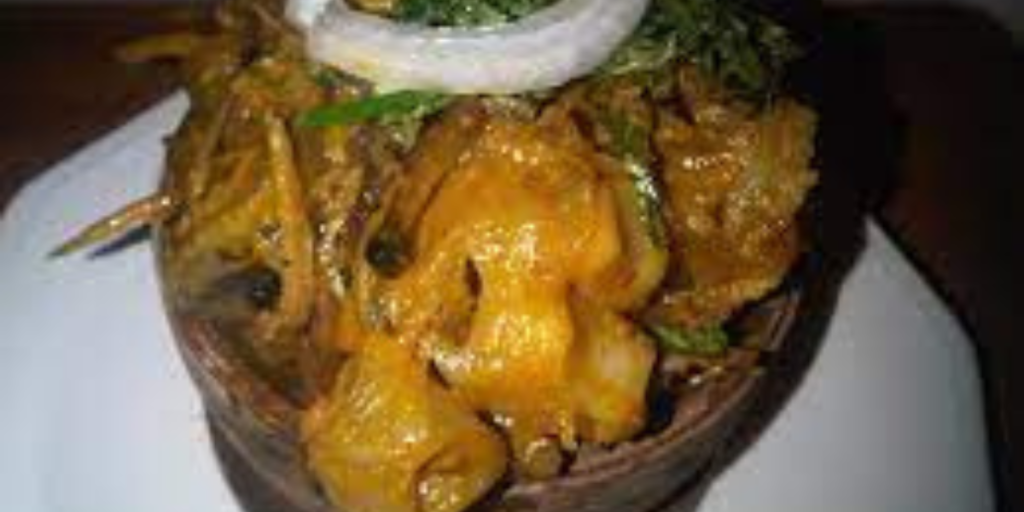
Nkwobi is a traditional Igbo dish from Nigeria, known for its robust flavors and rich cultural heritage. The origins of Nkwobi can be traced back to the southeastern region of Nigeria, where it was traditionally prepared using cow’s foot or offal. Over time, goat meat has become a popular alternative due to its tender texture and distinct taste.
In Igbo culture, Nkwobi is more than just a dish; it is a symbol of celebration and hospitality. It is often served at special occasions, family gatherings, and social events, where it brings people together to share in the joy of good food and company. The preparation of Nkwobi is considered an art, with each family and community adding their unique touch to the recipe.
Nkwobi has also evolved to reflect the diversity of Nigerian cuisine. While the traditional recipe remains cherished, modern variations have emerged, incorporating different meats and innovative ingredients. Today, Nkwobi enjoys widespread popularity not only in Nigeria but also among food enthusiasts around the world who appreciate its bold flavors and cultural significance.
What is the Difference Btw Nkwobi and Isi Ewu? Best 1
Preparing
Selecting the Right Goat Meat
The quality of meat used in Nkwobi plays a crucial role in determining the dish’s overall taste and texture. When selecting goat meat, opt for fresh, tender cuts that will absorb the flavors of the spices and sauce. Here are some tips for choosing the best goat meat for Nkwobi:
- Best Cuts of Goat Meat: The preferred cuts are those with a balance of meat and fat, such as the shoulder, neck, and leg. These cuts are tender and flavorful, making them ideal for slow cooking.
- Freshness: Fresh goat meat should have a clean, slightly gamey smell. Avoid meat with a strong, unpleasant odor, as it may indicate spoilage. The flesh should be firm to the touch and free of discoloration.
- Sourcing: If possible, purchase goat meat from a reputable butcher or a local farmer’s market. This ensures that you get high-quality meat that is fresh and properly handled.
- Alternatives: If goat meat is unavailable, you can substitute it with lamb or beef. While the flavor profile will differ slightly, these meats can still produce a delicious Nkwobi.
Essential Kitchen Tools
Having the right kitchen tools can make the process of cooking Nkwobi smoother and more enjoyable. Here is a list of essential tools you will need:
- Large Pot: A sturdy, large pot is essential for cooking the goat meat and ensuring even heat distribution.
- Wooden Spoon: A wooden spoon is perfect for stirring the meat and sauce without scratching your cookware.
- Cutting Board and Sharp Knife: A good-quality cutting board and a sharp knife are necessary for preparing the ingredients.
- Mixing Bowls: Several mixing bowls of different sizes will be useful for marinating the meat and mixing the sauce.
- Colander: A colander is handy for draining and rinsing the meat.
- Measuring Cups and Spoons: Accurate measurements are crucial for getting the right balance of flavors, so have a set of measuring cups and spoons on hand.
- Mortar and Pestle or Spice Grinder: For grinding spices to achieve a fresh and aromatic flavor.
- Heatproof Serving Dish: Traditional Nkwobi is often served in a wooden bowl, but any heatproof serving dish will work.
Cooking with Goat Meat
Step-by-Step Cooking Instructions
Cooking Nkwobi involves several steps, each crucial to achieving the perfect balance of flavors. Follow these detailed instructions to make it with goat meat:
- Preparing the Goat Meat:
- Cleaning: Start by thoroughly cleaning the goat meat. Rinse it under cold running water and remove any excess fat or debris. Pat the meat dry with paper towels.
- Cutting: Cut the goat meat into bite-sized pieces, ensuring uniformity for even cooking.
- Marinating: In a large bowl, combine the goat meat with salt, pepper, and ground crayfish. Allow it to marinate for at least 30 minutes to absorb the flavors.
- Boiling the Meat:
- Initial Boil: Place the marinated meat in a large pot and add enough water to cover it. Bring to a boil over medium heat and cook for 10 minutes.
- Draining: Drain the meat using a colander and rinse it under cold water to remove impurities.
- Second Boil: Return the meat to the pot, add fresh water, and bring to a boil again. Reduce the heat to a simmer and cook for 45-60 minutes or until the meat is tender.
- Making the Palm Oil Sauce:
- Ingredients: You’ll need palm oil, potash (kanwu), ground crayfish, ground pepper, seasoning cubes, and utazi leaves.
- Mixing: In a separate bowl, dissolve the potash in a small amount of water to create a thick paste. Heat the palm oil in a saucepan over low heat until it becomes a vibrant orange color.
- Combining: Gradually add the potash solution to the heated palm oil, stirring continuously. The mixture will thicken and form a slightly foamy texture. Add the ground crayfish, pepper, and seasoning cubes, and mix well.
- Combining Meat and Sauce:
- Coating the Meat: Add the cooked goat meat to the palm oil sauce and stir to ensure each piece is evenly coated.
- Simmering: Allow the meat to simmer in the sauce for an additional 10-15 minutes, stirring occasionally. This step ensures the flavors meld together and the meat absorbs the sauce.
- Adding Utazi Leaves:
- Preparation: Wash and chop the utazi leaves finely.
- Final Touch: Add the chopped utazi leaves to the pot, stirring gently to incorporate them into the dish. The slightly bitter taste of the leaves balances the richness of the sauce.
Nkwobi 1 of The Best Nigerian Meals You Should Try.
Serving and Enjoying Nkwobi

Traditional Serving Methods
Nkwobi is traditionally served warm, often in a wooden bowl or calabash. Here are some traditional accompaniments and presentation tips:
- Side Dishes: It is commonly enjoyed with side dishes such as boiled yam, plantains, or agidi (fermented corn pudding).
- Garnishes: Garnish with extra utazi leaves or chopped onions for added flavor and visual appeal.
- Serving Temperature: Serve it warm, as it enhances the flavors and provides a comforting experience.
Modern Twists and Variations
While the traditional recipe is cherished, modern twists and variations can add excitement to your Meal:
- Fusion Recipes: Experiment with fusion recipes by incorporating international ingredients such as bell peppers, tomatoes, or even coconut milk for a unique twist.
- Health-Conscious Alternatives: For a healthier version, reduce the amount of palm oil and opt for lean cuts of goat meat. You can also add more vegetables to the dish.
- Innovative Serving Ideas: Serve Nkwobi as an appetizer in small portions, or use it as a filling for wraps or sandwiches.
Cultural and Social Aspects
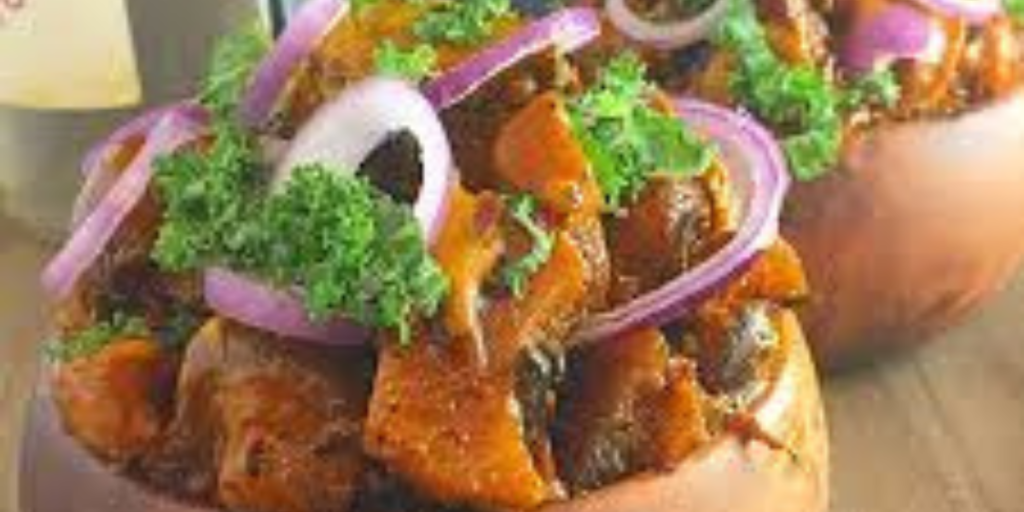
Nkwobi in African Celebrations
It holds a special place in Nigerian celebrations and social gatherings. It is often served at weddings, festivals, and family reunions, where it symbolizes unity and joy. Here are some cultural insights:
- Festive Occasions: During festive occasions, Nkwobi is prepared in large quantities and shared among guests as a symbol of hospitality.
- Traditions and Stories: Many families have unique recipes and traditions associated with Nkwobi. Sharing these stories can add a personal touch to your cooking experience.
- Personal Anecdotes: Including personal anecdotes or interviews with individuals who cherish Nkwobi can provide a deeper connection to the dish and its cultural significance.
Global Influence and Popularity
Nkwobi has gained international recognition, thanks to the global appreciation of African cuisine. Here are some highlights:
- International Appeal: Nkwobi is now featured in restaurants and food festivals worldwide, introducing people to its rich flavors and cultural heritage.
- Popular Chefs and Restaurants: Highlight renowned chefs and restaurants that have embraced Nkwobi and contributed to its global popularity.
- Adaptations and Recipes: Share recipes and adaptations from different parts of the world, showcasing the versatility and creativity inspired by Nkwobi.
How To make Semo Into Puff Puff in 2024 Best Recipe
Troubleshooting and FAQs
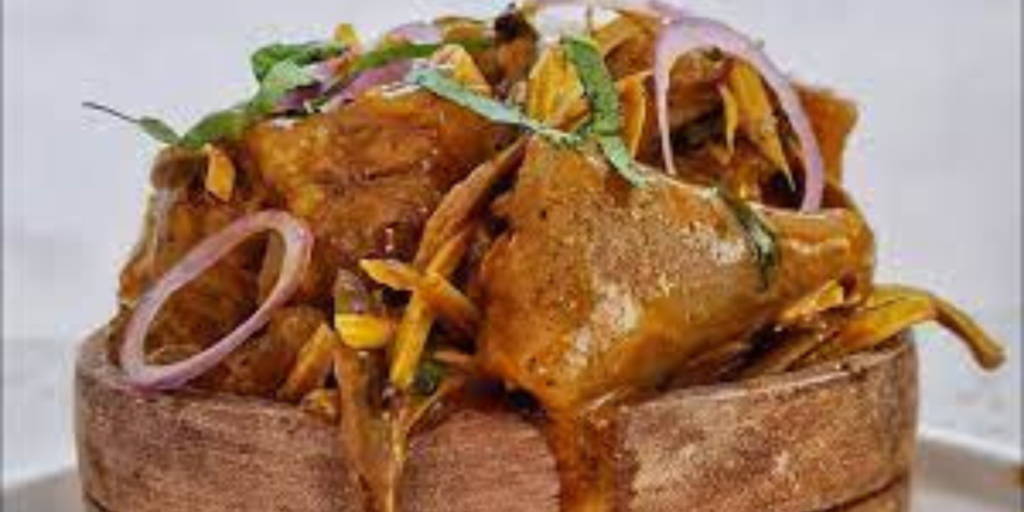
Common Mistakes and How to Avoid Them
Cooking it can be challenging, especially for first-timers. Here are some common mistakes and how to avoid them:
- Overcooking the Meat: Overcooked meat can become tough. Keep an eye on the cooking time and test the meat for tenderness regularly.
- Incorrect Palm Oil Consistency: Achieving the right consistency for the palm oil sauce can be tricky. Ensure you follow the steps carefully and adjust the potash solution as needed.
- Imbalanced Flavors: Taste the dish throughout the cooking process and adjust the seasoning to achieve a balanced flavor profile.
Frequently Asked Questions
Addressing common questions can help readers feel more confident in their cooking:
- What can I use instead of potash?: If potash is unavailable, you can use baking soda as a substitute, but use it sparingly to avoid altering the taste.
- Can I freeze Nkwobi?: Yes, you can freeze Nkwobi in an airtight container for up to three months. Thaw and reheat gently before serving.
- How do I store leftover Nkwobi?: Store leftover Nkwobi in the refrigerator in a covered container for up to three days. Reheat on the stovetop or in the microwave before serving.
Conclusion
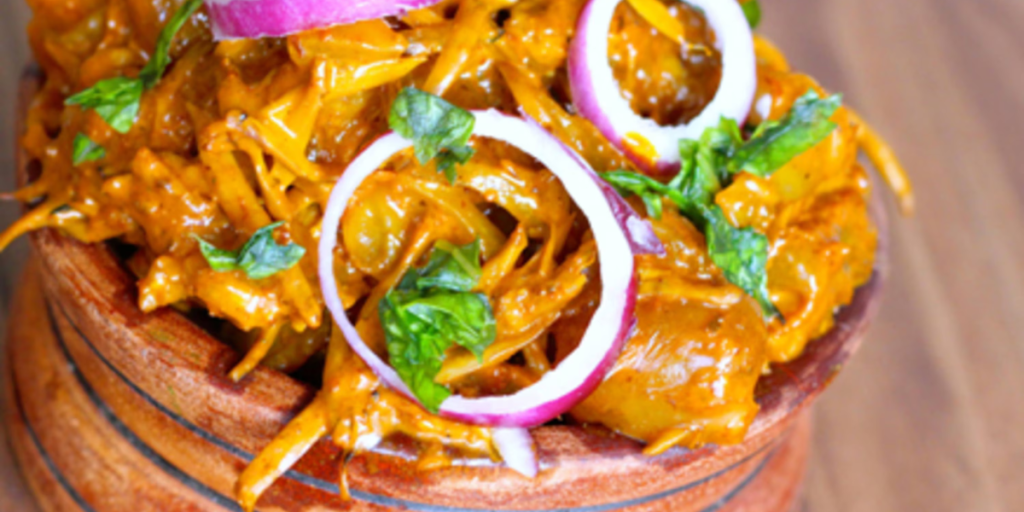
Recap and Final Thoughts
Nkwobi with goat meat is a delightful and culturally rich dish that offers a taste of Nigeria’s vibrant culinary heritage. By following this comprehensive guide, you can recreate the flavors and experience the joy of cooking Nkwobi in your own kitchen.
Engagement and Interaction
We encourage you to try making Nkwobi at home and share your experiences with us. Leave a comment, share photos, and let us know how your cooking journey went. Follow us on social media for more delicious recipes and join our community of food enthusiasts.
Stay tuned for our upcoming blog posts, where we’ll explore more African dishes and culinary adventures. Happy cooking!














